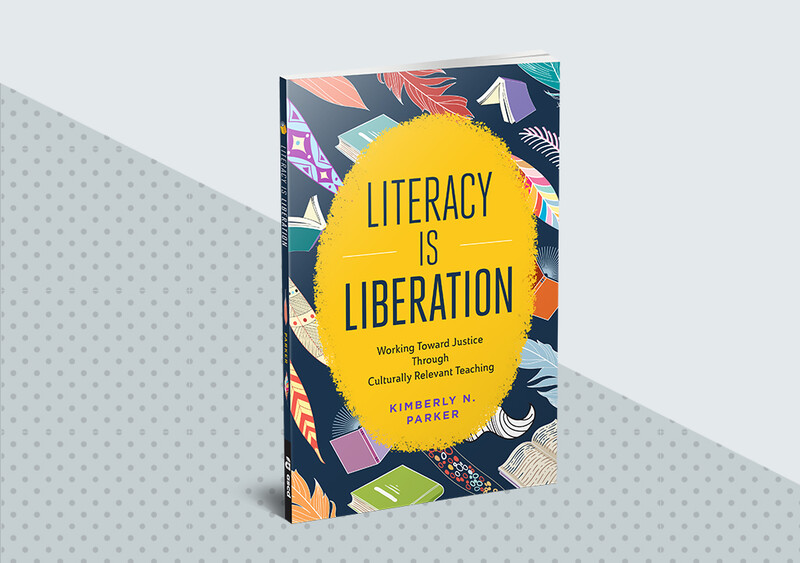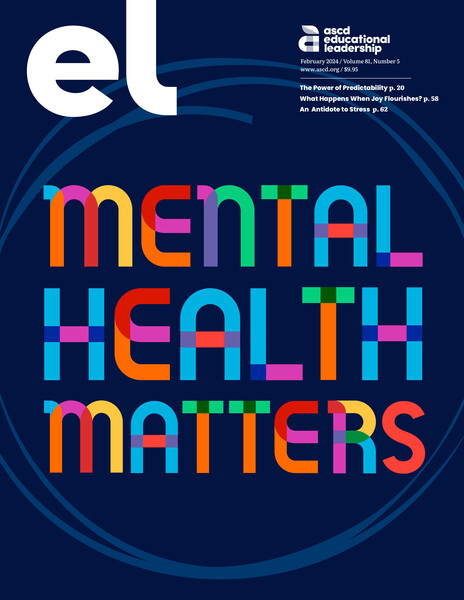Happy Black History Month! In this month’s column, I discuss some broader practices that might lead concerned and equity-conscious educators, particularly English language arts (ELA) educators, toward a goal we should all prioritize: eradicating anti-Blackness within our leadership or instructional practices. Anti-Blackness—according to a glossary of terms for racial equity, developed in 2022 by MP Associates and World Trust Educational Services—is a virulent form of racism that “voids Blackness of value, while systematically marginalizing Black people and their issues.”
First, Look Within
As a proactive step toward eliminating anti-Blackness, educators—both Black and non-Black—can challenge ourselves to think about where anti-Blackness lives within us, grappling with our own identities, histories, and beliefs. Let’s consider, then: How many Black people do we actually know? Of those Black people who are in our school community—students, colleagues, families—what do we know about their lived experiences? What do we know about how they use different forms of literacy in their everyday lives (such as texting with others to communicate impressions of what they’re viewing online or different ways they use reading, from checking bus schedules to responding to their caregivers in notes)? What might that knowledge help us to understand about how to make literacy practices relevant (or more relevant) to Black students?
We can challenge ourselves to think about where anti-Blackness lives within us, grappling with our own identities, histories, and beliefs.
ELA Teachers’ Role
English language arts teachers can play a big role in combatting the systematic “marginalizing [of] Black people and their issues.” Arlette Willis offers a historical framing of why literacy learning has always been critical for Black children, and we know it’s critical for young people’s success in the future.
To work against anti-Black racism, ELA teachers can:
Teach Different Stories
Ask yourself: Am I continuing to teach the same Black stories throughout February? Black History Month typically features stories of Martin Luther King Jr., Rosa Parks, and maybe a few others. There are 49,586,352 Black people in the United States according to the most recent U.S. census , all with vastly different experiences and histories. Why, then, do most teachers insist on telling only these particular stories, especially during this month? And why teach only sanitized parts of the story? If you must teach Rosa Parks, for instance, tell the whole truth, detailing her expansive work fighting for the rights of Black women long before the Montgomery Bus Boycott. Or share stories from Rann Miller’s book Resistance Stories from Black History for Kids: Inspiring People and Events That Every Kid Should Know (Ulysses, 2022) and draw from them in developing lessons. Millions of other stories center Black people or their experiences, including stories that move beyond trauma and individual success. Let’s spotlight those, instead.
Pause to Check Policies
Mid-year is an important time to reflect on current policies and how they impact Black children. Is your school providing literacy opportunities that teach relevant content and enlarge children’s worlds? Are the Black children in your classes reading on grade level? If not, explore why not. Do their parents and caregivers know that their children aren’t on grade level, and is that message communicated in clear wording and in multiple languages, along with collaborative action steps?
February is also nearing the point in the school year when many educators recommend students for honors and AP classes. Black youth are underrepresented in these classes and educators can have huge influence toward moving students into these opportunities. Let’s consider: In what ways might our anti-Blackness limit our willingness to recommend Black children for AP Language classes, Honors English, or other advanced courses?
Knowledge isn't enough; we must push toward the next step of doing something with all the books we’ve read, workshops we’ve attended, or conversations we’ve had.
Understand the Import—Then, Act!
Studying how fraught literacy has been for those of African descent in this country is vital to eradicating anti-Blackness within our practice. Yet, understanding the facts and context behind racism isn’t enough; we must push toward the next step of doing something with all the books we’ve read, workshops we’ve attended, or conversations we’ve had. Next steps vary for everyone; yet I cannot stress enough how important it is that we move forward. Some ideas for action include:
- Look at the texts that remain to be taught for the year. Decide to replace one (or more) with a text by a Black author that is not one focused on a traumatic situation.
- Speak with your department head about future PD and contract with a Black presenter for continuous sessions on equity throughout the next school year.
- Continue to challenge book bans and support the work of librarians, who are also on the front lines to keep books by Black writers, and other books, in the hands of children.
Anti-Blackness is everywhere, including our literacy practices. It impacts how we see and understand our Black children, whether we push them to excel in more challenging classes, and even which books we decide to share with them. If we’re prompted by the pause Black History Month provides to take a critical, reflective look at our practices, we can make and enact a plan that contextualizes history and the need to affirm the importance of literacy for Black children. And, crucially, we can take action to ensure our children are equipped with the literacy tools they need to be democratic citizens of the world.
Literacy Is Liberation
When teachers put culturally relevant pedagogies into action, the literacy classroom can become a space for learners to explore diverse texts, collaboratively dismantle inequities, and let their spoken and written voices be heard.








